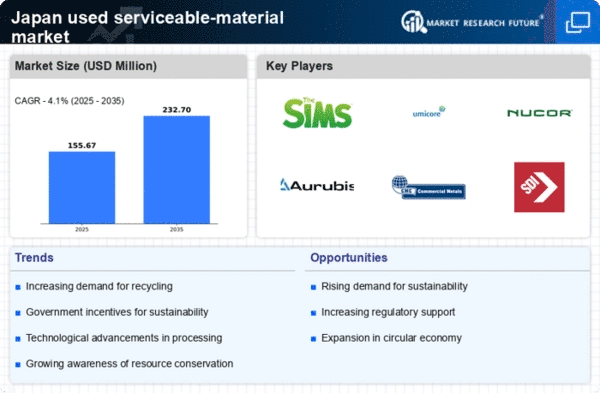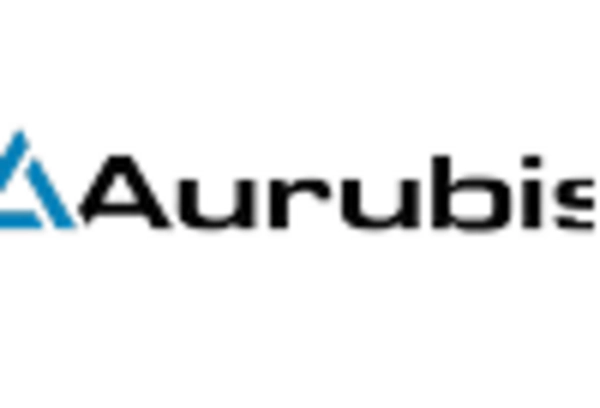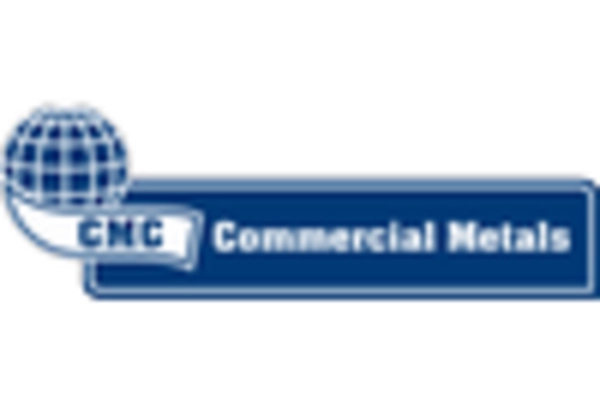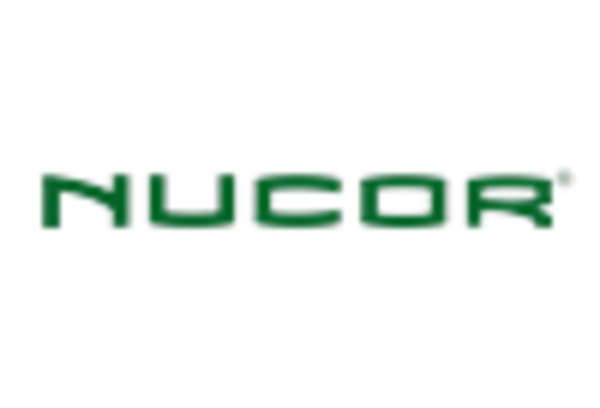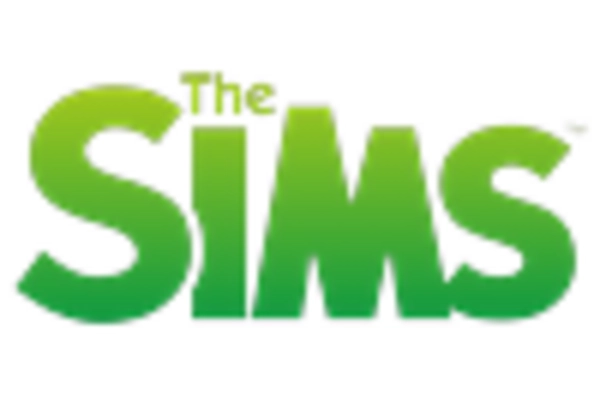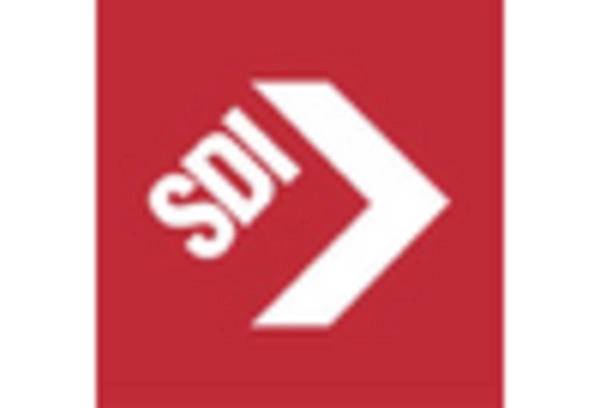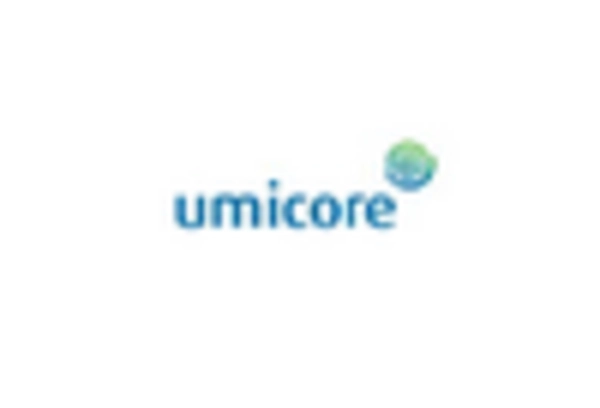Rising Raw Material Costs
The increasing costs of raw materials in Japan have prompted industries to seek alternative sources, including used serviceable materials. As the prices of virgin materials rise, companies are likely to turn to the used serviceable-material market as a cost-effective solution. For example, the price of steel has seen fluctuations, with recent reports indicating a rise of approximately 15% over the past year. This trend compels manufacturers to explore recycled options, which can significantly reduce production costs. The shift towards using recycled materials not only addresses economic pressures but also aligns with sustainability goals. Consequently, the used serviceable-material market is poised to benefit from this growing demand as businesses look for ways to mitigate costs while adhering to environmental regulations.
Consumer Awareness and Demand
There is a notable increase in consumer awareness regarding sustainability and environmental impact in Japan. This heightened consciousness is driving demand for products made from used serviceable materials. Consumers are increasingly favoring brands that demonstrate a commitment to sustainability, which is influencing manufacturers to incorporate recycled materials into their products. Surveys indicate that over 60% of Japanese consumers are willing to pay a premium for eco-friendly products. This trend is likely to propel the used serviceable-material market, as businesses respond to consumer preferences by sourcing and utilizing recycled materials. The alignment of consumer values with sustainable practices creates a robust market environment, encouraging innovation and investment in the used serviceable-material sector.
Collaboration Across Industries
Collaboration among various sectors is emerging as a key driver for the used serviceable-material market in Japan. Partnerships between manufacturers, recyclers, and government entities are fostering a more integrated approach to resource management. Such collaborations facilitate knowledge sharing and the development of best practices, which can enhance the efficiency of recycling processes. For example, joint initiatives aimed at creating closed-loop systems are gaining traction, where companies work together to ensure that materials are reused and recycled effectively. This cooperative spirit not only strengthens the supply chain for used serviceable materials but also promotes innovation in recycling technologies. As industries unite to tackle waste management challenges, the used serviceable-material market is likely to experience significant growth.
Regulatory Support for Recycling
The regulatory framework in Japan increasingly emphasizes recycling and the sustainable use of materials. The government has implemented various policies aimed at promoting the recycling of used serviceable materials, which is expected to bolster the market. For instance, the Circular Economy Promotion Law encourages businesses to adopt practices that minimize waste and maximize resource efficiency. This regulatory support is likely to enhance the demand for used serviceable materials, as companies seek to comply with environmental standards. Furthermore, the Japanese government has set ambitious targets for recycling rates, aiming for 50% by 2030. Such initiatives not only foster a favorable environment for the used serviceable-material market but also stimulate innovation in recycling technologies, thereby creating new opportunities for market players.
Technological Innovations in Recycling
Technological advancements in recycling processes are transforming the used serviceable-material market in Japan. Innovations such as advanced sorting technologies and improved processing methods enhance the efficiency and effectiveness of recycling operations. For instance, the introduction of AI-driven sorting systems has increased the recovery rates of valuable materials from waste streams. This technological progress not only improves the quality of recycled materials but also reduces operational costs for recycling facilities. As these technologies become more widespread, they are likely to attract investment and increase the competitiveness of the used serviceable-material market. The ability to produce high-quality recycled materials will further encourage industries to adopt these resources, thereby fostering growth in the market.


